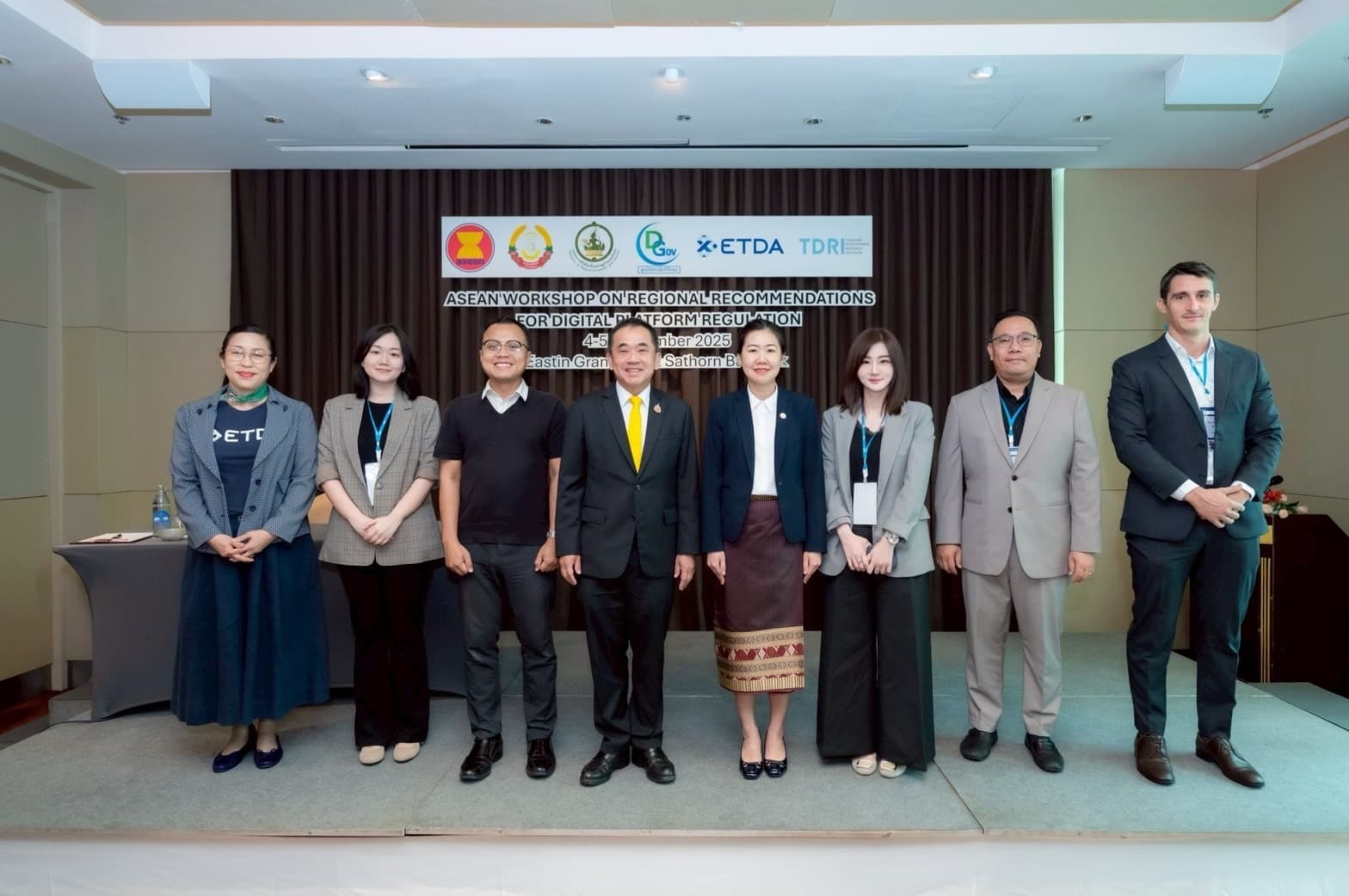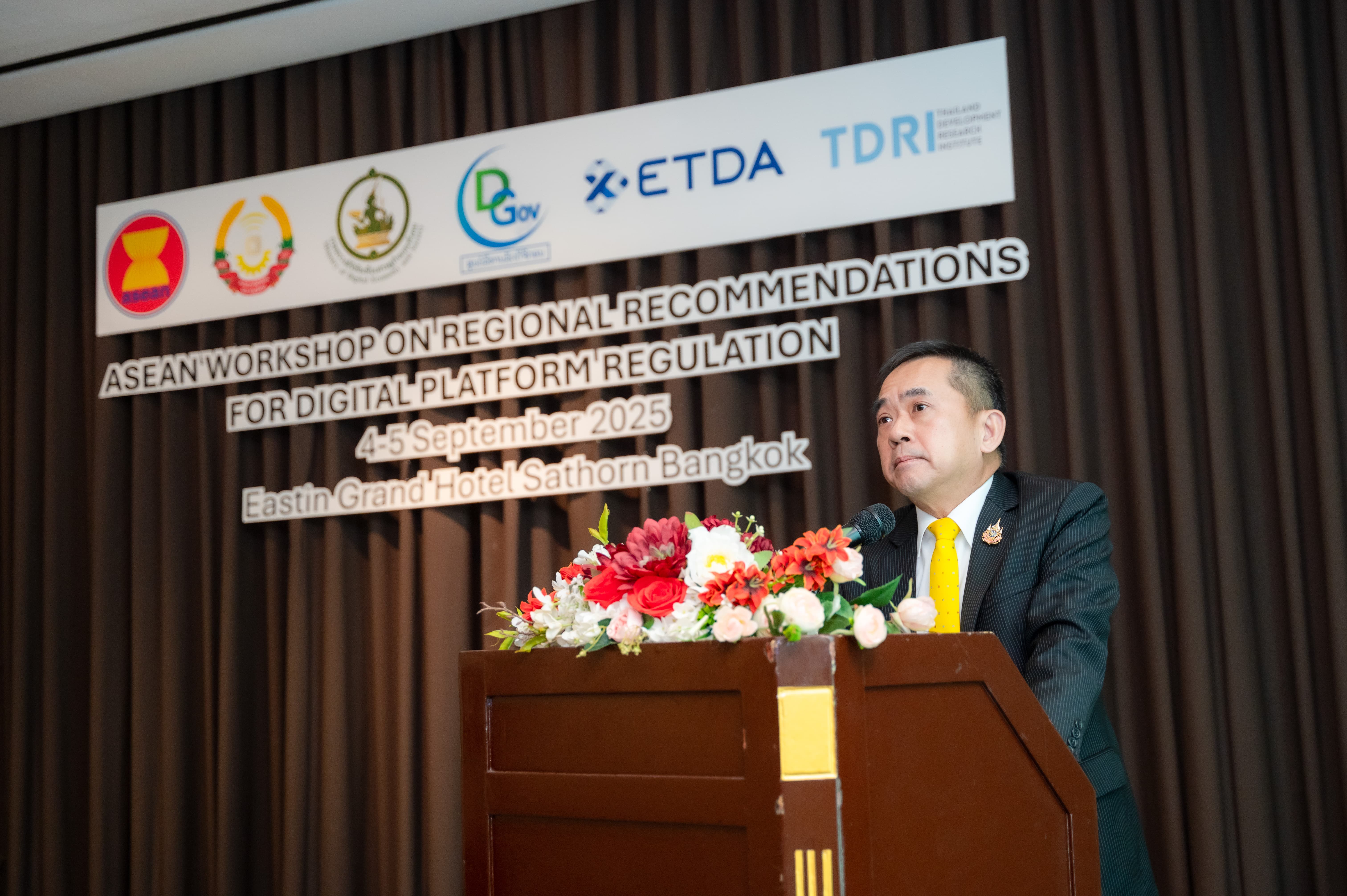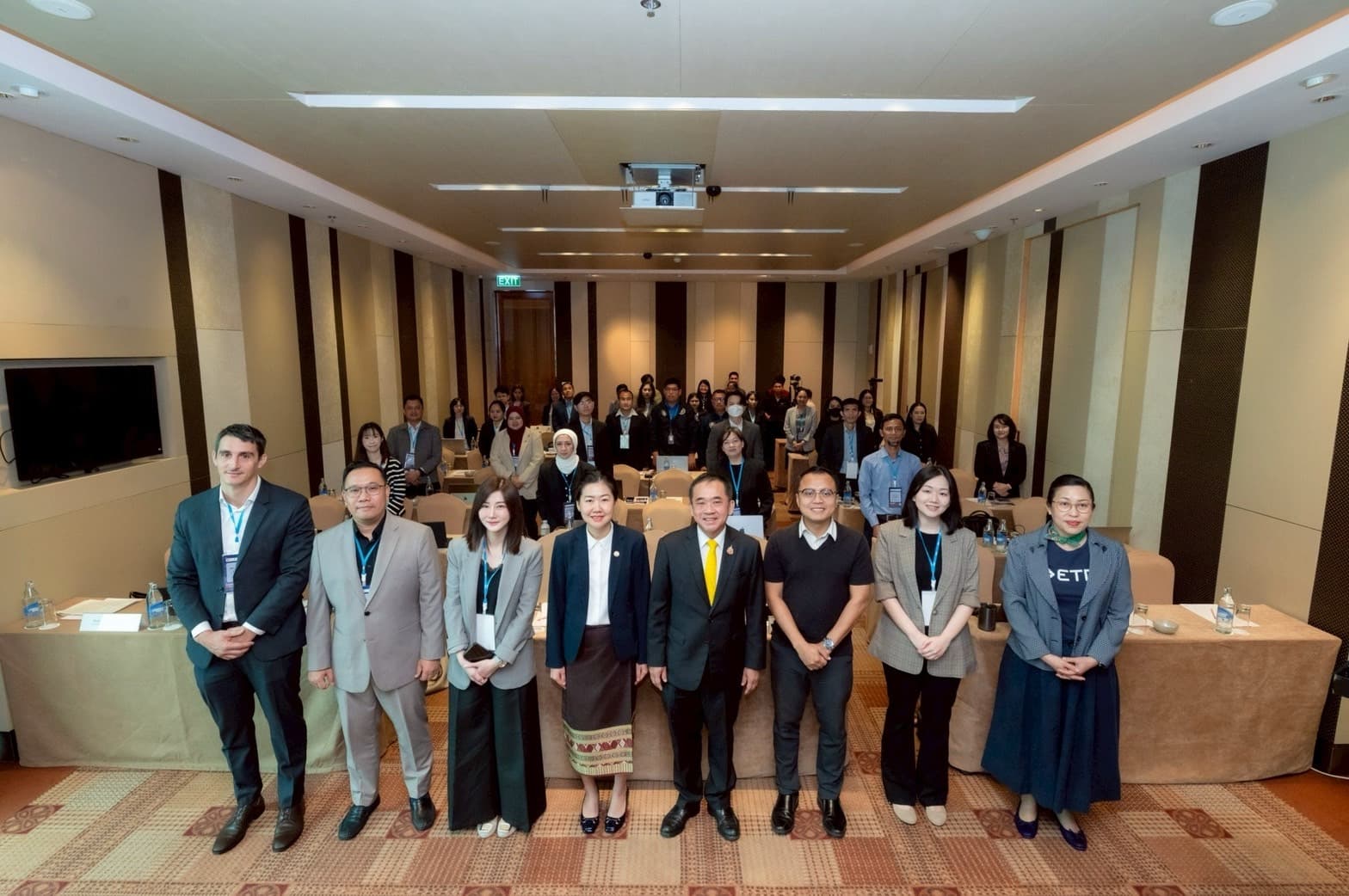
Digital Platform Service
- 30 ก.ย. 68
-
 762
762
-
ASEAN seeks a common hand on digital platforms
In an age where a single click can connect people across borders, digital platforms have become the infrastructure of modern economies and societies. Their reach, however, has far outpaced national regulators’ grasp. Across South-East Asia, governments are struggling to keep up with fake news, online scams, opaque algorithms and unrestrained harvesting of user data.
That is the backdrop to the “ASEAN Workshop on Regional Recommendations for Digital Platform Regulation,” held in Bangkok on September 4th–5th. The event, convened by Thailand’s Electronic Transactions Development Agency (ETDA) and Laos’s Digital Government Center, marks the region’s first concerted effort to sketch out common rules for policing the digital giants. Representatives from all ten ASEAN member states attended, joined by the ASEAN Secretariat and experts from America, Europe, Japan and UNESCO.
The workshop featured not just international experience-sharing but also the unveiling of research conducted by ETDA, Laos’s digital-government agency, and the Thailand Development Research Institute (TDRI). Their studies compared ASEAN’s patchy regulatory landscape with frameworks elsewhere, and offered a first draft of regional policy recommendations. The aim is to create a long-term cooperative agenda: one that promotes efficiency, fairness and consumer protection in the online economy.

The case for cooperation
Professor Wisit Wisitsora-at, Permanent Secretary of Thailand’s Ministry of Digital Economy and Society, opened the meeting with a blunt assessment: “Many platforms have no physical presence in the countries they serve. This makes national regulation, especially for smaller states, increasingly difficult.” He pointed to the EU’s approach—building common rules and speaking with one voice—as an example of how collective action amplifies bargaining power with the world’s tech titans.Domestic regulation, he added, is no less complicated. Oversight is scattered across multiple agencies—from the central bank to the securities regulator to the transport department—underscoring the need for stronger coordination across government. Ms. Vannapha Phommathansy, Deputy Director-General of Laos’s Digital Government Center, agreed: no country, she said, can face platform-related threats alone, particularly when misinformation and scams move effortlessly across borders.
Early proposals
The research presented in Bangkok outlined a set of options for ASEAN policymakers. These include regional “market inquiries” into platform competition situation, the creation of a bloc-wide database of unsafe goods and services, Know-Your-Business-Customer (KYBC) rules for online sellers, and greater transparency obligations for the largest platforms. Cross-border cooperation on online fraud and enforcement was a recurring theme.
Dr. Saliltorn Thongmeensuk, Senior Research Fellow at TDRI, noted that countries are becoming more alert to risks such as algorithmic harms and online fraud. “Creating cooperative mechanisms in this area would be a tangible benefit of a regional approach” she said. The proposals, she explained, emphasize not uniform rules but “phased and flexible cooperation,” allowing states to adopt measures according to national priorities.
Linking into ASEAN’s wider digital agenda
At the close of the workshop, ETDA officials outlined next steps: consultations in Thailand and across ASEAN, culminating in a final report to the ASEAN Secretariat. Mr. Hazremi Hamid, from the ASEAN Secretariat, stressed that the value lies not only in the content of the recommendations but in their integration into ASEAN’s existing frameworks, notably the Digital Economy Framework Agreement (DEFA) and the ASEAN Digital Masterplan 2030. DEFA, with provisions on competition, cybersecurity, online safety and emerging issues such as artificial intelligence, is set to become ASEAN’s main vehicle for digital platform governance.Momentum will continue next month at the ASEAN–UNESCO Multistakeholder Forum on the Governance of Digital Platforms, co-hosted by Thailand, UNESCO, the ASEAN Secretariat and the European University Institute. That gathering will draw in governments, businesses and civil society to test whether the emerging ASEAN approach can be both effective and fair.

A first step
With the region’s digital economy expanding at breakneck speed, ASEAN members face rising risks if they go alone. The path forward is unlikely to be a single set of binding rules. More plausibly, it will be a gradual weaving together of shared principles, cooperative mechanisms and flexible commitments. The Bangkok workshop marks a tentative first step towards a more trustworthy and transparent digital ecosystem, one where consumers can be protected, and platforms held to account, without stifling the innovation that makes them so indispensable.
These issues will be further explored and discussed at the upcoming ASEAN–UNESCO Multistakeholder Forum on the Governance of Digital Platforms, which Thailand’s Electronic Transactions Development Agency (ETDA), Ministry of Digital Economy and Society, has the honor of co-hosting with UNESCO, in cooperation with the ASEAN Secretariat and the Global Initiative on the Future of the Internet of the European University Institute (EUI), on 20–22 October 2025. Further details are available on ETDA’s official website.
DOWNLOAD Guideline for Digital Platform Regulation in ASEAN
(uploaded on 10 February 2026)